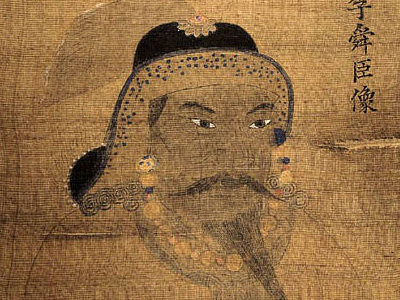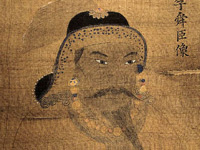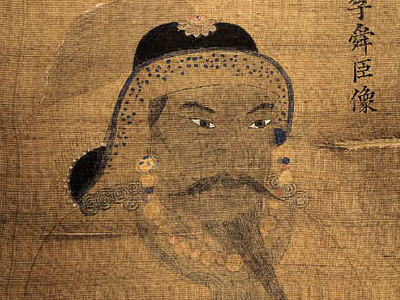Yi Sun-Shin 이순신 (1545-1598)

Japanese invasions of Korea (1592–1598)
Yi is remembered for his numerous victories fighting the Japanese during the Japanese invasions of Korea (1592–1598). Among his twenty-three victories, the Battle of Myeongnyang and the Battle of Hansan Island are the most famous battles.
In 1592, Toyotomi Hideyoshi gave the order to invade Korea and use it as a forward base to conquer Ming China. After the Japanese attacked Busan, Yi began his naval operations from his headquarters at Yeosu. Despite never having commanded a naval battle in his life, he won the Battle of Okpo, Battle of Sacheon, and several others in quick succession. His string of victories made the Japanese generals suddenly wary of the threat at sea.
Hideyoshi was fully aware of the need to control the seas during the invasion. Having failed to hire two Portuguese galleons to help him, he increased the size of his own fleet to 1700 vessels, assuming that he could overwhelm the Joseon navy with numerical superiority.
There were numerous reasons why Yi was so successful against the Japanese fleets. Yi had prepared for the war by checking the status of his soldiers, granaries, and supplies, replacing them when it was necessary. As part of this preparation, Yi resurrected and built the turtle ship, which was a considerable factor in his victories. Yi also had a great deal of information about the southern Korean coast and he planned his battles using the sea tides and narrow straits to his advantage.
Yi was a charismatic leader, and was able to maintain his soldiers' morale despite constantly being low on supplies and food, and continuous news of countless Korean losses in ground battles. In some records, it is stated that he went as far as to personally fulfill some of his soldiers' dying wishes. He demonstrated his loyalty to the people by treating them with respect and fighting amongst them even when endangered. Because of this, Admiral Yi became immensely popular among his soldiers and the Korean people, who often provided him with intelligence reports at great risk to themselves.
The Joseon panokseon were structurally stronger than Japanese ships at the time. Panokseon had stronger hulls and could carry at least 20 cannons, compared to the Japanese 1 or 2. Japanese ship-mounted cannons were inferior to the Koreans' in both range and power. Cannon development had been neglected by the Korean government, so Yi personally saw to it that the technology was developed. As such, the Korean side had several different types of cannons at their disposal in battle.
Admiral Yi was an excellent naval strategist. The Japanese navy's strongest tactic was to board enemy ships and engage in hand-to-hand combat. The panokseon was slower than the Japanese ships so Yi had little room for error to negate the Japanese navy's most dangerous tactic. He was able to do so in every naval engagement he commanded.
As Yi's brilliance as a strategist revealed itself throughout the war, his legend grew. In what could be considered his greatest victory in the Battle of Myeongnyang, Yi proved victorious in the battle with 13 panokseon, while the Japanese had at least 333 ships (133 warships, at least 200 logistical support ships).
It was largely due to Yi's complete control of the seas that the Japanese were eventually forced to retreat, keeping Joseon safe from another Japanese invasion until the end of the war.
HISTORY

RESOURCES
This article uses material from the Wikipedia article "Yi Sun-Shin", which is released under the Creative Commons Attribution-Share-Alike License 3.0.
© Stories Preschool. All Rights Reserved.










